In this blog post, I will talk briefly about the ECML PKDD 2021 conference that I have attended virtually this week, from the 13th to the 17th of September 2021..
What is ECML PKDD?
ECML PKDD is an european conference about machine learning and data mining. This is year is the 24th edition of that conference. PKDD is viewed as a quite good conference in the field of data mining.
It is not the first time that I attend PKDD. I previously wrote some report about ECML PKDD2020 .
The PKDD 2021 program
Researchers could submit their research papers to two main tracks : the research track and the applied data science track. For these two tracks, 685 and 220 submissions were received, and 146 (21%) and 64 (29%) of the papers were accepted, respectively. Thus, it is slightly easier to get accepted in the applied data science track.
Besides these two tracks, 40 papers were accepted as part of a journal track. The journal track is something special that not all conferences have. How it works? Someone can submit a paper to either the Machine Learning journal or the Data Mining and Knowledge Discovery journal and be accepted at the same time for presenting the work at the PKDD conference.
There was 22 workshops, 8 tutorials and 2 combined workshop-tutorials, including the first Machine Learning in Software Engineering (MLiSE 2021) workshop, that I co-organize.
The PKDD proceedings of regular papers is published by Springer in the LNCS series:

For the workshops, there was no official proceedings. Thus, several workshop organizers (including the MLiSE workshop that I co-organize), have teamed-up to organize a separate workshop proceedings that will appear after the conference, and will be published by Springer. Other workshops may have chosen to publish their proceedings in other ways.
An online conference
Due to the coronavirus pandemic, the conference was held online using a conference system called Whova. The website/app is quite convenient to use. It allows to see the schedule of the conference and recorded videos of the talk could be watched at a later moment. There is also some function to search for attendees based on location and similar interests, which is interesting. It allowed me to find some other researchers in my city.
Opening ceremony
The opening ceremony gave more details about the conference.
For the research track, it was said that this year, there was 384 program committee members to select papers, and 68 area chairs. On average, most papers had 3 reviews or more, with some having up to 5 reviews.
Some stats about the Research track:
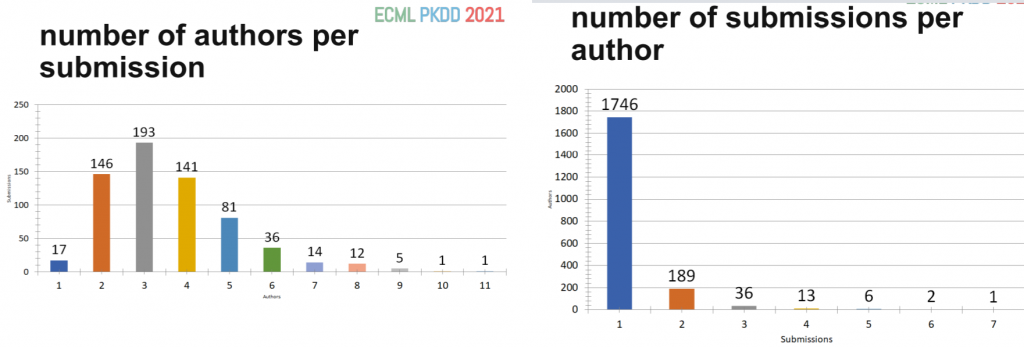
The most popular keywords of the research track:
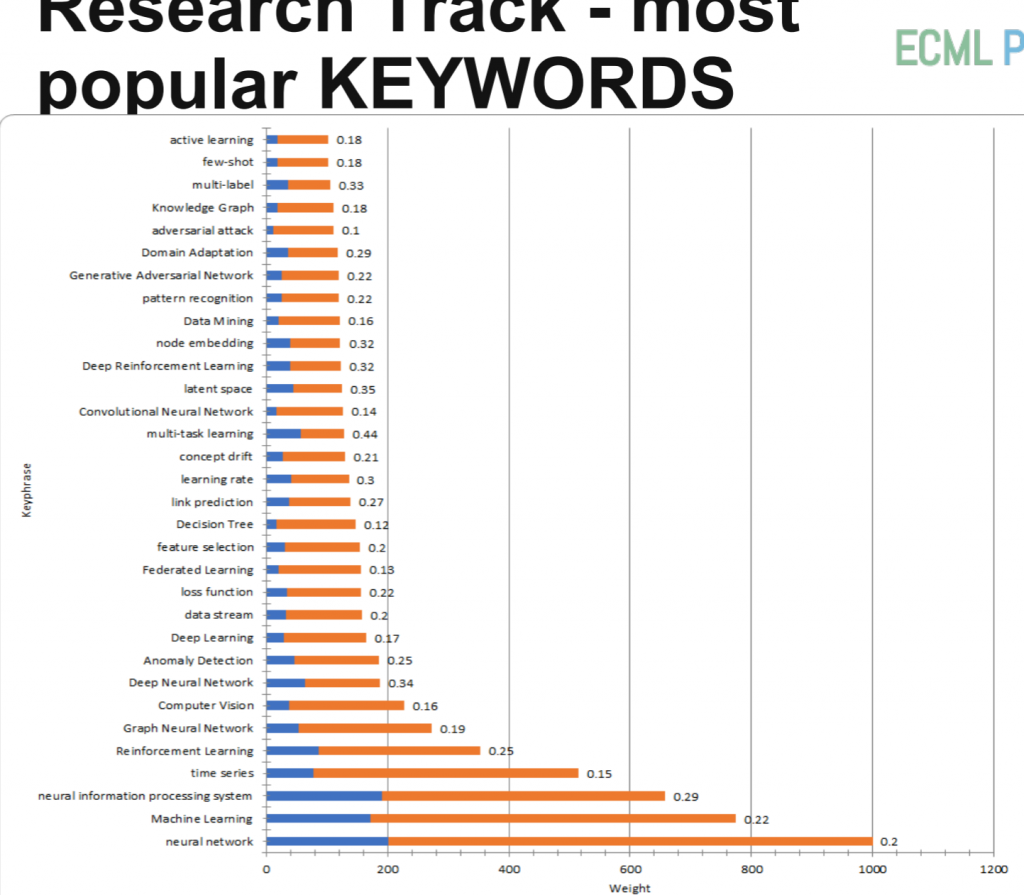
For the Applied data science track, there was 233 program committee members and each paper was reviewed by 3 to 5 reviewers.
The key phrases from the applied data science track are:
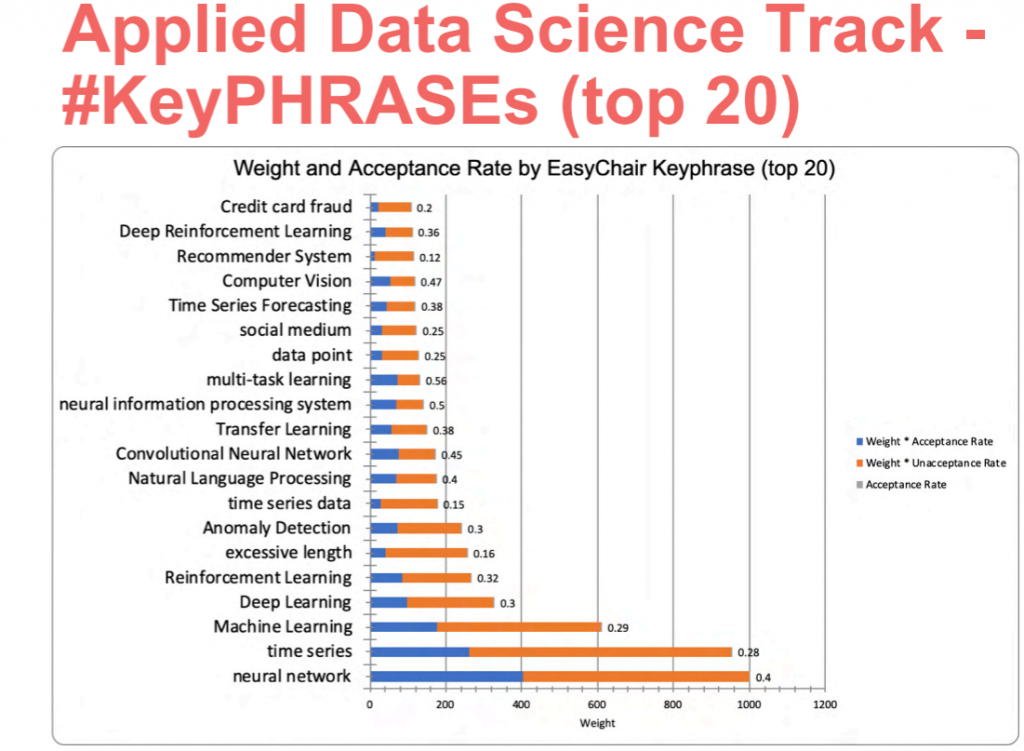
Some other stats from the applied data science track:
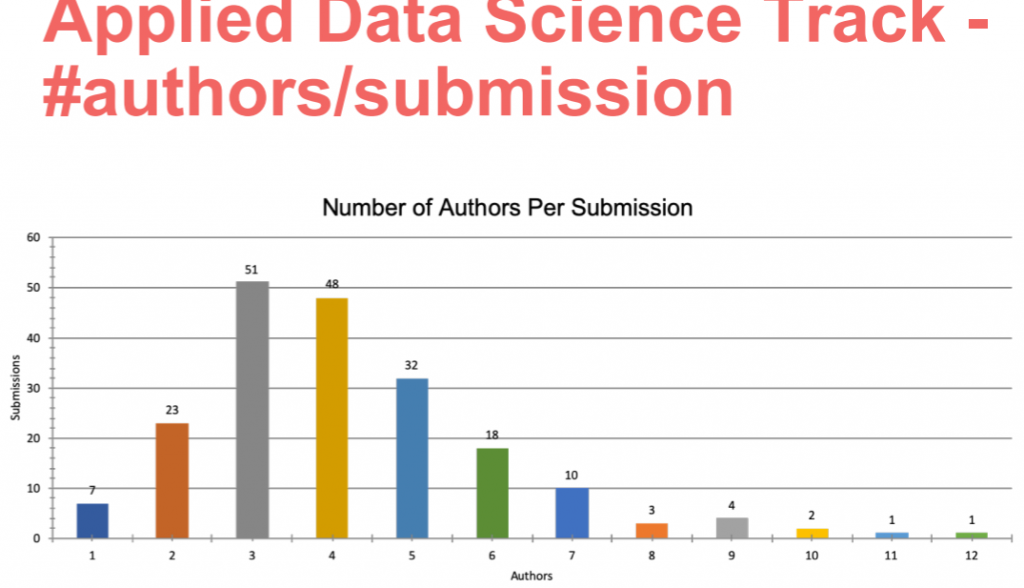
Some slides about the journal track, including the number of accepted papers and submitted papers:
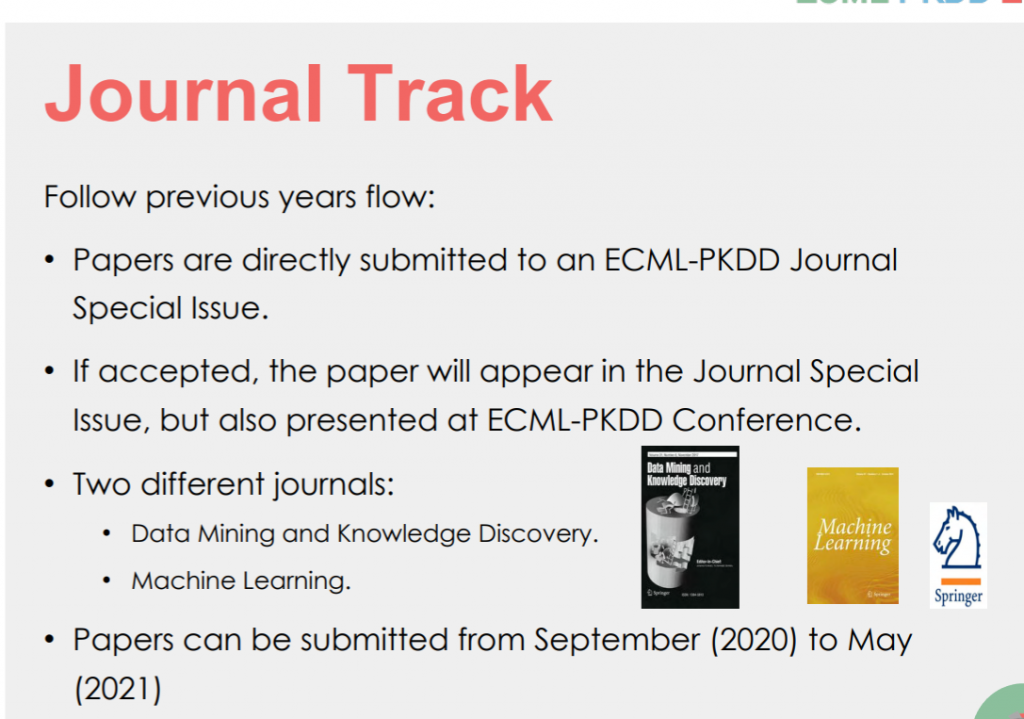
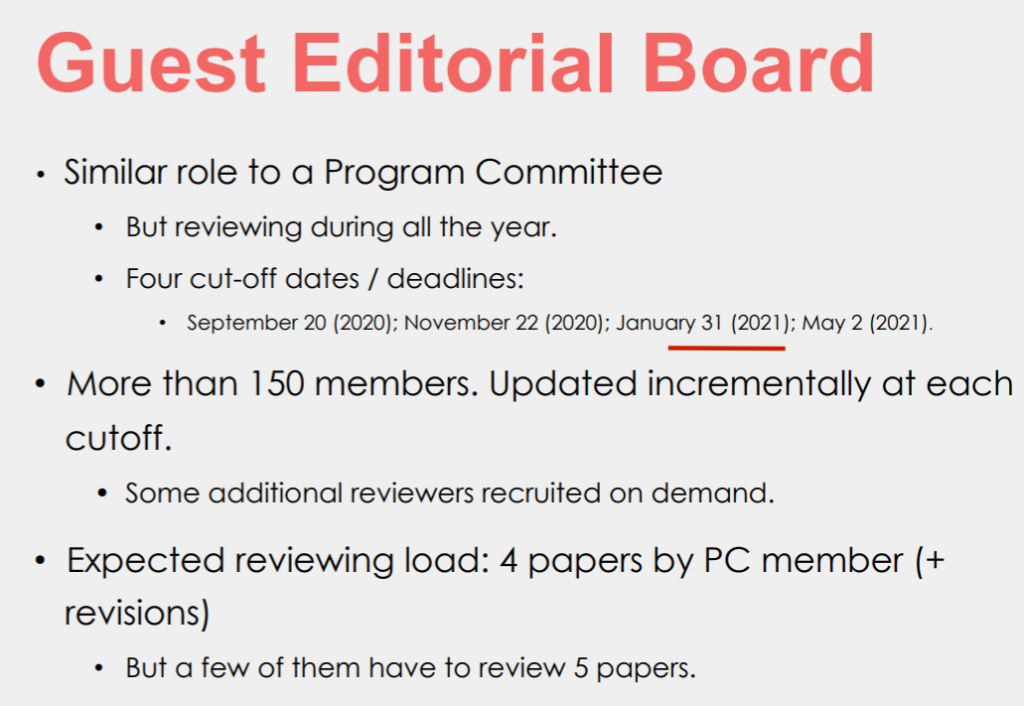

Some slides about the workshop topics:
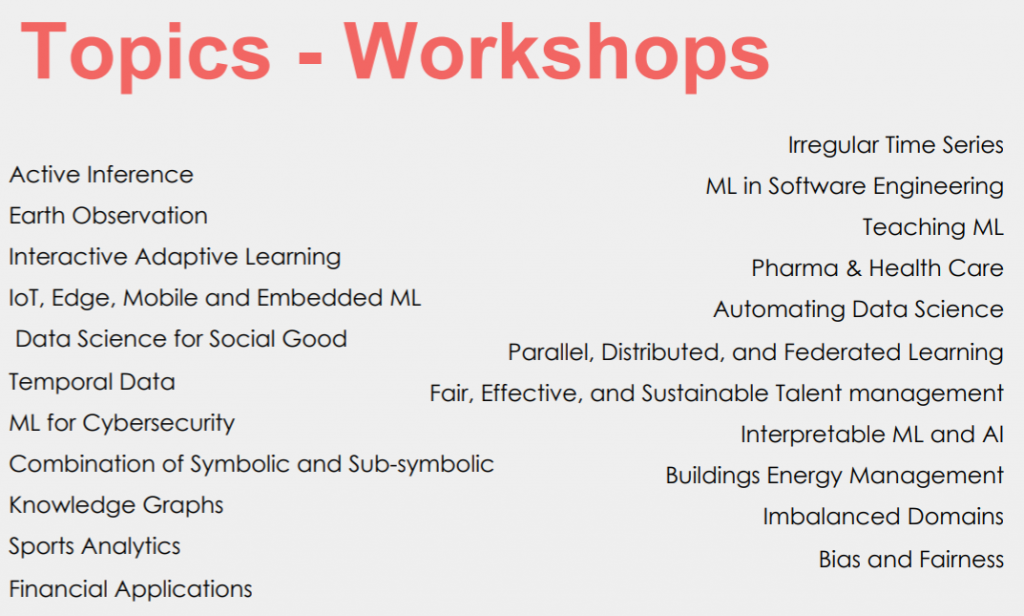
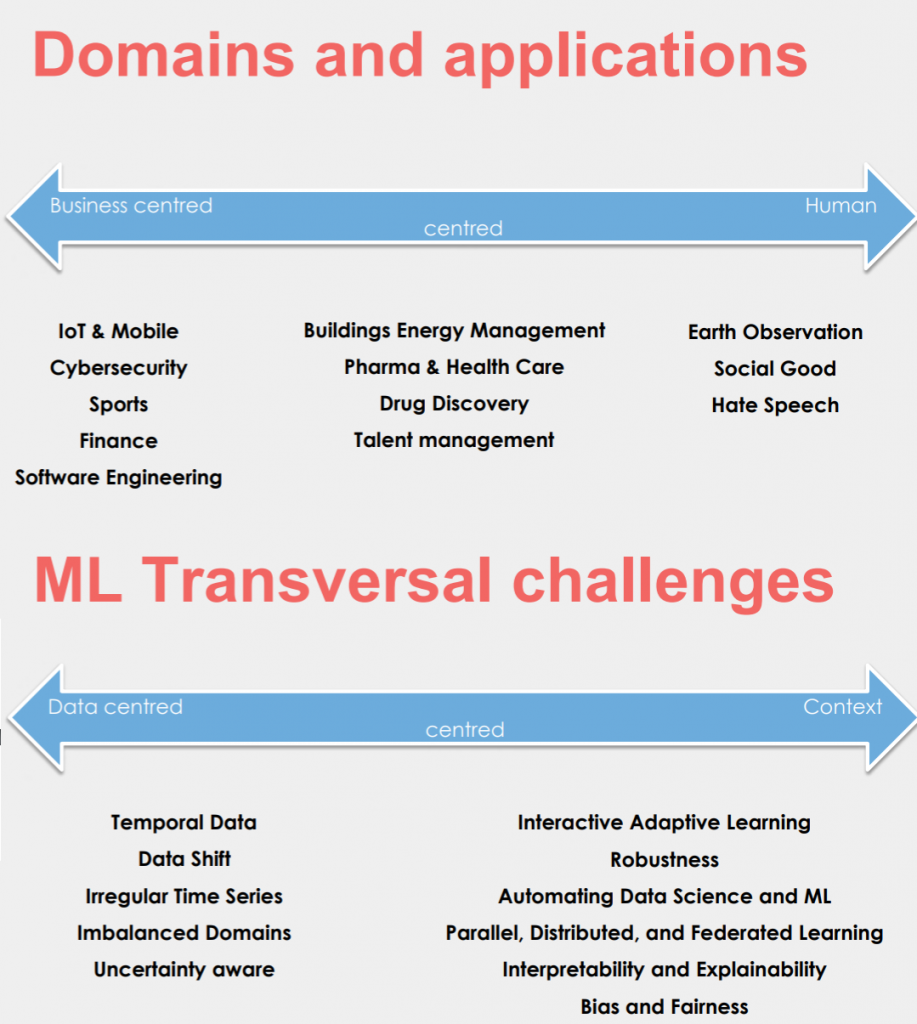
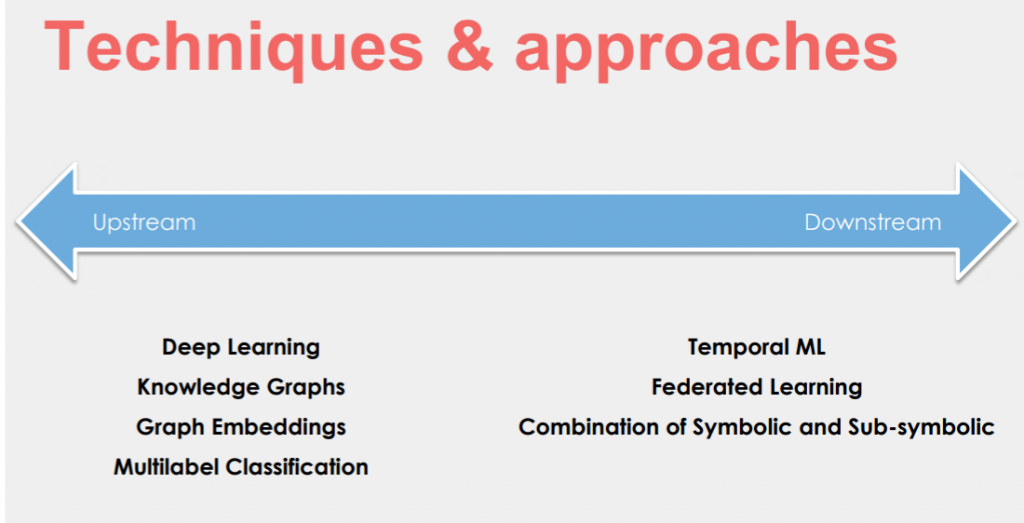
Best paper award
Several awards were announced. Mainly, the best paper award went to:
Reparameterized Sampling for Generative Adversarial Networks,
by Yifei Wang, Yisen Wang, Jiansheng Yang and Zhouchen Lin
Workshop on Machine Learning on Software Engineering (MLiSE 2021)
There was also the first MLiSE workshop on Machine Learning in Software Engineering, that I have co-organized. Here are a few slides from the opening ceremony:



The best paper award of MLiSE went to this paper:

We had an excellent keynote talk by Prof. Zhi Jin from Peking University, who talked about using deep learning for software engineering. Some models were discussed for tasks such as code completion and code clone detection. A free tool called AIXCoder was also presented to support software developpers using AI.

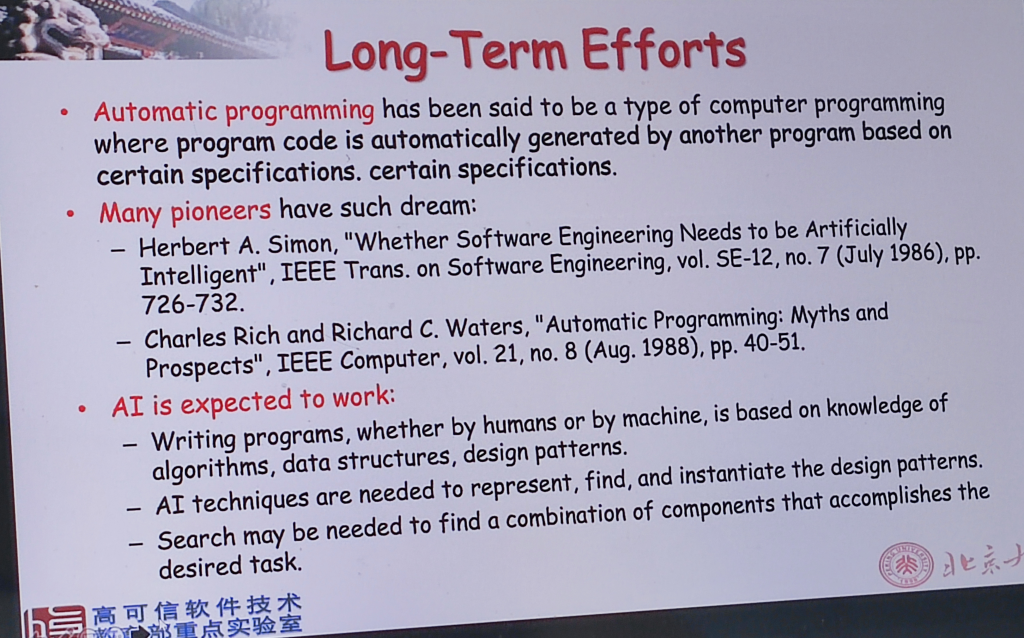



There was also a second excellent keynote by Prof. Atif Mashkoor from Johannes Kepler University Austria
With two keynotes, seven papers, and many attendees, the MLiSE workshop was a success. We will thus try to organize it again at ECML PKDD next year!
Conclusion
That is all about the conference. I could have written more but this week was very busy. I could not attend all the events.
—
Philippe Fournier-Viger is a full professor working in China and founder of the SPMF open source data mining software.





